Solar energy is already taking over land, with homeowners using sunlight to run their houses. Now solar-powered yachts are fast becoming the hottest new trend among yacht owners and boat builders. Instead of diesel-powered boats, yachting enthusiasts are choosing solar power to reduce carbon emissions.
The solar-power yachts not only eliminate the fuel cost forever but also make the cruising experience more peaceful due to noise-free operation. The number of watts the boat consumes varies depending on its size, particular needs, and the number of appliances you want to charge.
Fortunately, Jackery offers a wide range of solar generators to charge boats and various other electrical devices. In this guide, we will reveal everything related to a solar-powered yacht and how to power it.
What Is A Solar Powered Yacht?
A solar-powered yacht uses marine solar panels to generate electricity instead of fuel. The four primary components of a solar power system include solar panels, an inverter, a charge controller, and a battery. The rechargeable battery and solar panels in the solar system work hand-in-hand.

The solar panels attached to the power station convert the solar energy into electricity while the battery stores it. However, the system requires an additional component called a charge controller to ensure the battery does not receive high voltage.
The inverter converts direct current (DC) into alternating current (AC) to power devices like microwaves, TVs, fridge, or laptops on your yacht. You will have to buy these components separately and set up a solar power system on your boat.
Solar Powered Yacht Vs. Solar Generator For Yacht
As stated above, you will have to buy solar panels, an inverter, a battery, and a charge controller to assemble a solar-powered yacht. However, that's not the case if you use a portable solar generator to power yachts and appliances.
Instead of four separate components, a solar generator consists of solar panels and a power station. The solar power station includes an in-built charge controller, inverter, and a rechargeable battery, so you don't have to set up everything separately.
Below we focus on the pros and cons of each powering solution.
|
Types |
Components |
Pros |
Cons |
|
Solar Powered Yacht |
|
|
|
|
Solar Generator for Yacht |
|
|
May be less efficient on cloudy days. |
Solar Powered Yacht
Yachts powered by solar energy are increasing in demand as they have a less environmental impact and do not emit harmful gases. Below we cover many more benefits and drawbacks of solar power yachts.
Pros
- Solar energy is limitless and free, ensuring you don't rely on fuel.
- Solar-powered boats produce less noise compared to gas-powered ships. Thus, they cause less disturbance to marine life.
- You can power your yacht's battery as long as the sun shines.
Cons
- Adding multiple solar panels can take up much deck space.
- Solar boats work well only on sunny days, especially if you have a small battery.
- The cost of a solar-powered yacht is high as there are four different components.
- Installing a solar yacht can be cumbersome without professional help.
Solar Generator For Yacht
Unlike solar-power yachts, a portable solar generator is an affordable and convenient option to charge boats. The lightweight, sturdy design and compact size of the solar generator make it suitable for short trips or extended cruises.

A solar generator consists of solar panels that convert sunlight into electricity and a rechargeable power station that stores it. Jackery Solar Generators are robust enough to meet the power needs of small and extended sails.
You can choose Jackery Solar Generator 1500 Pro or 2000 Pro to charge most yacht appliances for long hours. However, if you want to enjoy an extended cruise and power 99% of outdoor devices, you can choose Jackery Solar Generator 3000 Pro.
Pros
- Solar generators do not require any installation. All you need to do is connect the panels to the power station and start charging the yacht.
- They produce clean energy to reduce environmental impact and carbon footprint.
- As solar generators do not have any moving parts, they operate silently and require low maintenance.
- Multiple output ports enable you to charge numerous electrical devices simultaneously.
Cons
- Solar generators convert less sunlight into electricity on cloudy days.
How Many Watts Does A Yacht Use?
A watt is a unit that measures the rate at which electrical energy is used by an appliance, while an amp is the amount of electrical current flowing through the circuit. In simple words, electrical power is measured in watts, whereas amps measure the electric current.
Formula: Watts = Volts × Amps
The exact number of watts a yacht consumes will depend on several factors, including the boat's size, the number and type of appliances, and the time you use them. However, you can expect a small yacht to consume nearly 500 watts. On the other hand, a larger boat may use more than 3000 watts.
Daily Navigation:
|
Equipements |
Consumption |
Use |
Consumption |
||
|
Watt (12V) |
Amp |
Hours |
Watt-hour |
Amp-hour |
|
|
Comfort |
|
||||
|
Refrigerator |
42 |
3.5 |
6 |
252 |
21 |
|
Water under pressure |
72 |
6 |
1 |
72 |
6 |
|
Music |
12 |
1 |
2 |
24 |
2 |
|
Electronic |
|
||||
|
Pilot |
60 |
5 |
2 |
120 |
10 |
|
GPS card reader |
24 |
2 |
3 |
72 |
6 |
|
VHF broadcast |
48 |
4 |
0.1 |
4.8 |
0.4 |
|
VHF watch |
0.96 |
0.08 |
10 |
9.6 |
0.8 |
|
Central Navigation |
24 |
2 |
2 |
48 |
4 |
|
Sounder |
12 |
1 |
2 |
24 |
2 |
|
Total average consumption for daily navigation |
626.4 Wh |
52.2 Ah |
|||
Coastal Navigation:
|
Equipements |
Consumption |
Use |
Consumption |
||
|
Watt (12V) |
Amp |
Hours |
Watt-hour |
Amp-hour |
|
|
Lightning |
|
||||
|
Square |
24 |
2 |
4 |
96 |
8 |
|
Cabins |
24 |
2 |
1 |
24 |
2 |
|
Cockpit |
24 |
2 |
1 |
24 |
2 |
|
Bathroom |
24 |
2 |
0.5 |
12 |
1 |
|
Mooring |
12 |
1 |
8 |
96 |
8 |
|
Comfort |
|
||||
|
Fridge |
42 |
3.5 |
16 |
672 |
56 |
|
Water under pressure |
96 |
8 |
0.5 |
48 |
4 |
|
Electronic |
|
||||
|
VHF watch |
0-96 |
0.08 |
24 |
23.04 |
1.92 |
|
VHF broadcast |
48 |
4 |
0.15 |
7.2 |
0.6 |
|
Sounder |
12 |
1 |
1 |
12 |
1 |
|
Computer / TV |
48 |
4 |
2 |
96 |
8 |
|
Total average consumption for coastal navigation |
1110 Wh |
92Ah |
|||
Offshore Navigation:
|
Equipment |
Consumption |
Notes |
|
|
Watt (12V) |
Amp |
||
|
VHF |
3 |
0.25 |
Standby |
|
GPS |
6 |
0.5 |
Without cartography |
|
Handset |
24-48 |
2-4 |
Next screen size |
|
Radar |
25-48 |
2-4 |
Next power |
|
Power plant |
12-48 |
1-4 |
Next number display |
|
Pilot |
48-72 |
4-6 |
Next power |
|
AIS |
6 |
0.5 |
|
|
Computer |
24-48 |
2-4 |
Next screen |
|
Fridge |
42 |
3.5 |
|
|
Navigation lights |
24 |
2 |
Reduced with LED |
|
Floodlight |
48 |
4 |
Reduced with LED |
|
Water under pressure |
72 |
6 |
|
|
Lighting |
24-60 |
2-5 |
Reduced with LED |
How Much Does It Cost To Power A Yacht?
The cost you will spend to power your solar yacht will depend on vessel size, the energy you use, and the type of appliances you use on your boat.
A 200-watt solar panel can cost somewhere between $650-700. If you require 10 solar panels to power a 2000-watt yacht, you'll have to spend approximately $7000. The additional components, like a charge controller, rechargeable battery, and inverter, may cost around $3000.
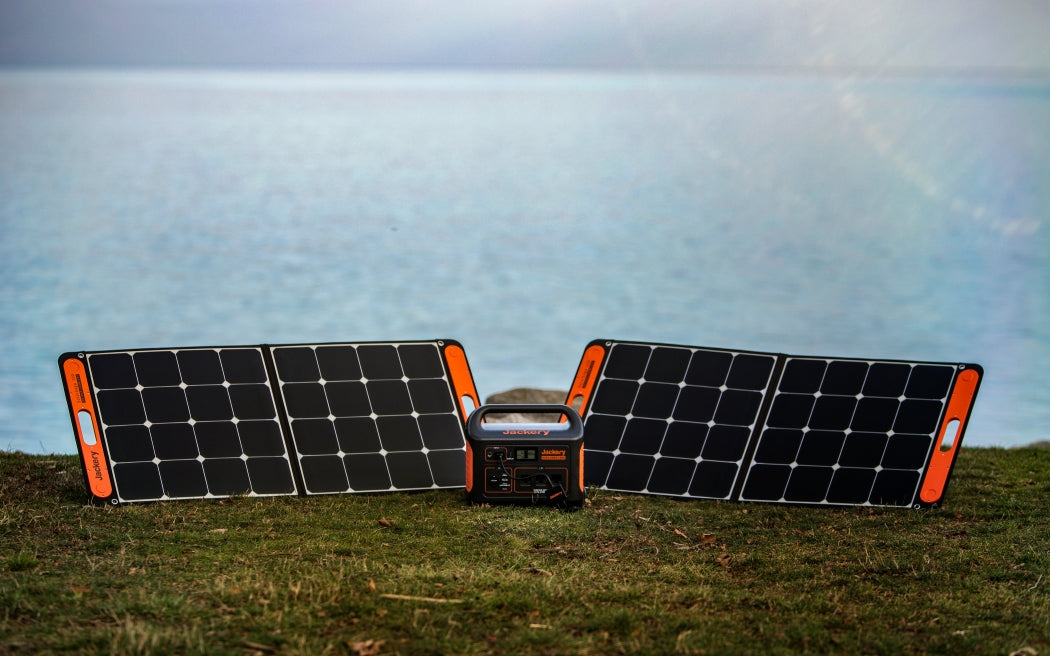
On the contrary, you can easily purchase a high-quality, marine-grade solar generator that generates similar power for around $3000-4000. That is half the total cost of installing a solar-powered yacht.
Jackery Solar Generator 2000 Plus is the ideal and affordable solar powering solution. You can purchase Jackery Explorer 2000 Plus Portable Power Station and two SolarSaga 200W Solar Panels at $3299 only.
How Much Solar Power Does A Yacht Need?
A solar yacht generally requires 500-5,000 watts of power, depending on its size. For example, if your solar-powered yacht consumes 1000 watts, you'll have to install 5*200 watts. On the other hand, if the boat requires 5000 watts of power, you have to install 25*200 watts.
Fortunately, a solar generator saves deck space by reducing the number of solar panels. To power a yacht that consumes 1000 watts, you can choose Jackery Solar Generator 2000 Plus with a battery capacity of 2042.8Wh. It is compact in size and a portable solution to meet most power needs.
Below are the watt requirements of the yacht devices, so you can choose the right size solar generator.
|
Yacht Devices |
Watts |
Length of Time |
Solar Power Needed |
|
Fridge |
42W |
6H |
252Wh |
|
Water under pressure |
72W |
1H |
72Wh |
|
Music |
12W |
2H |
24Wh |
|
Fan |
70W |
8H |
560Wh |
|
Microwave |
1200W |
30 Min |
600Wh |
|
LED Light bulb |
25W |
6H |
150Wh |
|
Navigation panel |
2W |
8H |
16Wh |
|
TOTAL WATTS USED |
1,674Wh |
||
Jackery Solar Generator For Yacht
If you are looking for a solar generator that works efficiently and charges most yacht appliances, choose Jackery Solar Generators. The marine-grade products from Jackery are safe, reliable, and efficient solutions to power yachts and boats.

The best part about Jackery Solar Generators is that you don't have to worry about finding the proper solar charger. The efficient Jackery SolarSaga Solar Panels are built with monocrystalline silicon solar cells that can work to convert maximum sunlight and generate electricity.
You can consider investing in Jackery Solar Generator 2000 Plus with multiple ports to charge yachts and other electronic devices. On the other hand, Jackery Solar Generator 1000 Plus Roam Kit can power 99% of devices efficiently and the Jackery SolarSaga 100 Prime Solar Panels can be installed on the boat.
|
Series |
Capacity |
Outlets |
Yacht Watts |
Working Hours |
|
Jackery Solar Generator 1000 Plus Roam Kit (Explorer 1000 Plus + SolarSaga 100 Prime Solar Panels) |
1264Wh |
AC Output (x3): 120V~60Hz, 2000W (4000W Peak) USB-A Output (x2): 18W Max, 5-5V⎓3A USB-C Output (x2): 100W Max, (5V, 9V, 12V, 15V, 20V up to 5A) Car Port (x1): 12V⎓10A |
Fridge: 42W Water under pressure: 72W Music: 12W Fan: 70W Microwave: 1200W LED Light bulb: 25W Navigation panel: 2W |
Fridge: 25.5H Water under pressure: 14.9H Music: 89.5H Fan: 15.3H Microwave: 53 Min LED Light bulb: 42.9H Navigation panel: 537.2H |
|
Jackery Solar Generator 2000 v2 (Explorer 2000 v2 + SolarSaga 200W) |
2042.8Wh |
AC Output (x3): 120V ~ 60Hz, 18.3A USB-A Output (x1): 18W Max, 5-6V⎓3A, 6-9V⎓2A, 9-12V⎓1.5A USB-C Output (x2): 30W Max, 5V⎓3A, 9V⎓3A, 12V⎓2.5A, 15V⎓2A, 20V⎓1.5A; 100W Max, 5V⎓3A, 9V⎓3A, 12V⎓3A, 15V⎓3A, 20V⎓5A Car Port (x1): 12V⎓10A Max |
Fridge: 42W Water under pressure: 72W Music: 12W Fan: 70W Microwave: 1200W LED Light bulb: 25W Navigation panel: 2W |
Fridge: 41.3H Water under pressure: 24.1H Music: 144.6H Fan: 24.8H Microwave: 1.4H LED Light bulb: 69.4H Navigation panel: 868.1H |
|
Jackery Solar Generator 2000 Plus (Explorer 2000 Plus + SolarSaga 200W) |
2042.8Wh |
AC Output (×4):120V~ 60Hz, 20A Max AC Output (×1):120V~ 60Hz, 25A Max USB-A Output (x2): Quick Charge 3.0, 18W Max USB-C Output(x2): 100W Max, (5V, 9V, 12V, 15V, 20V up to 5A) Car Port (x1): 12V⎓10A |
Fridge: 42W Water under pressure: 72W Music: 12W Fan: 70W Microwave: 1200W LED Light bulb: 25W Navigation panel: 2W |
Fridge: 41.3H Water under pressure: 24.1H Music: 144.6H Fan: 24.8H Microwave: 1.4H LED Light bulb: 69.4H Navigation panel: 868.1H |
|
Jackery Solar Generator 2000 Plus Kit (4kWh) (Explorer 2000 Plus + Battery Pack 2000 Plus + 2*SolarSaga 200W) |
4085.6Wh |
AC Output (×4):120V~ 60Hz, 20A Max AC Output (×1):120V~ 60Hz, 25A Max USB-A Output (x2): Quick Charge 3.0, 18W Max USB-C Output(x2): 100W Max, (5V, 9V, 12V, 15V, 20V up to 5A) Car Port (x1): 12V⎓10A |
Fridge: 42W Water under pressure: 72W Music: 12W Fan: 70W Microwave: 1200W LED Light bulb: 25W Navigation panel: 2W |
Fridge: 82.6H Water under pressure: 48.2H Music: 289.3H Fan: 49.6H Microwave: 2.8H LED Light bulb: 138.9H Navigation panel: 1736.3H |
Solar Powered Yacht FAQs
What size of solar generator do I need to power a yacht?
You can use a mathematical formula to calculate the right size of the solar generator.
Example: Suppose you want to power a yacht that consumes around 1000 watts. The working time of Jackery Solar Generator 2000 Plus will be:
Working Time = Capacity Wh × 0.85 / Operating wattage of your yacht.
Working Time = 2042.8Wh × 0.85 / 1000W = 1.7 hours.
As Jackery Solar Generators come with a pass-through charging feature, you can simultaneously charge yacht appliances and the power station. Hence, you will never go out of power with Jackery.
Note: As there will be some power loss while using the product, we multiply it by 0.85.
How many solar panels do I need for my yacht?
The exact number of solar panels will depend on the watt requirement of your yacht. If your ship consumes 2000 watts, you'll have to install 20*100 watts solar panels.
Instead of installing multiple solar panels, you can choose Jackery Explorer Portable Power Station and Jackery SolarSaga Solar Panels. The combination of the power station and solar panels can charge yacht batteries and appliances for long hours.
How to go solar on your yacht?
Here are a few points to follow if you want to go solar.
- Calculate the daily energy consumption and decide how much power you'll need.
- Choose the right solar panels that can convert maximum energy into electricity.
- Identify the right location where the solar panels will receive maximum sunlight exposure.
- Install the solar power panels in series or parallel using mounting brackets.
- Connect solar panels to the yacht's battery bank via wires and install a charge controller to prevent overcharging.
On the contrary, if you use a portable Jackery Solar Generator, you don't have to install multiple components. Instead, you can connect the solar panels to the power station, which will charge the yacht battery or appliances.

Final Thoughts
Solar energy is a reliable and consistent source of power that is efficient for charging solar-powered yachts. Not only does the solar generator power the boat, but it also helps you power other appliances like mini-fridges, coolers, or electric stoves.
Investing in a portable solar generator means you have a power source to charge appliances during outdoor activities like camping, hiking, etc. Jackery Solar Generators are made with high-quality materials and can keep your gear powered when you are out on the water.
All in all, a solar generator will ensure you don't miss any land pleasures. Whether playing games on a console or heating food in the microwave, you can do it all with the sun's power.

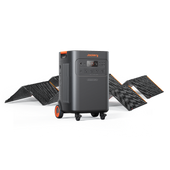











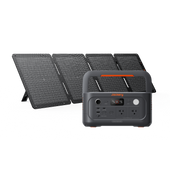





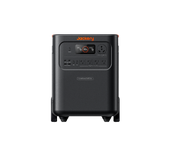
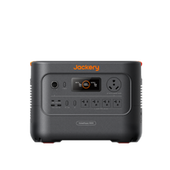





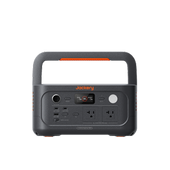





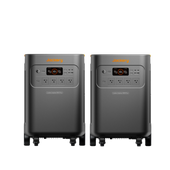
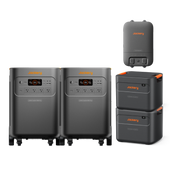





![[Add - on] Jackery Manual Transfer Switch for Explorer 5000 Plus - Jackery](http://www.jackery.com/cdn/shop/files/add-on-jackery-manual-transfer-switch-for-explorer-5000-plus-9017324.png?v=1754016782&width=170)
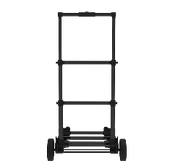
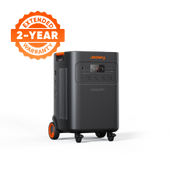
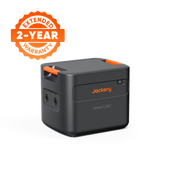
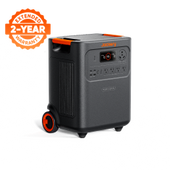
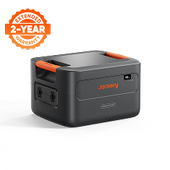
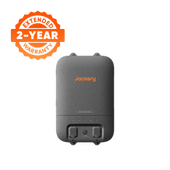



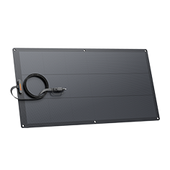
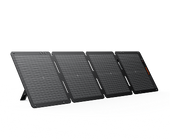




















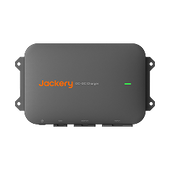




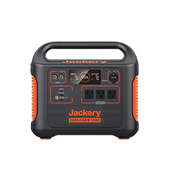







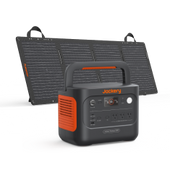
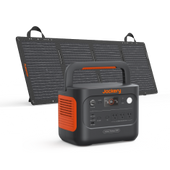




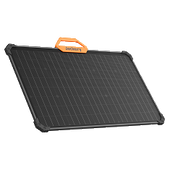
















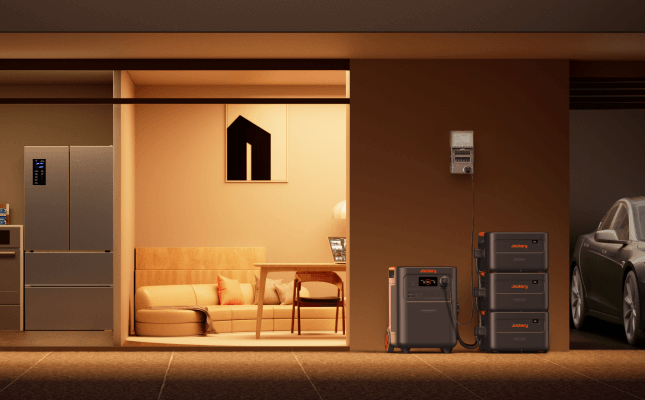


























Leave a comment